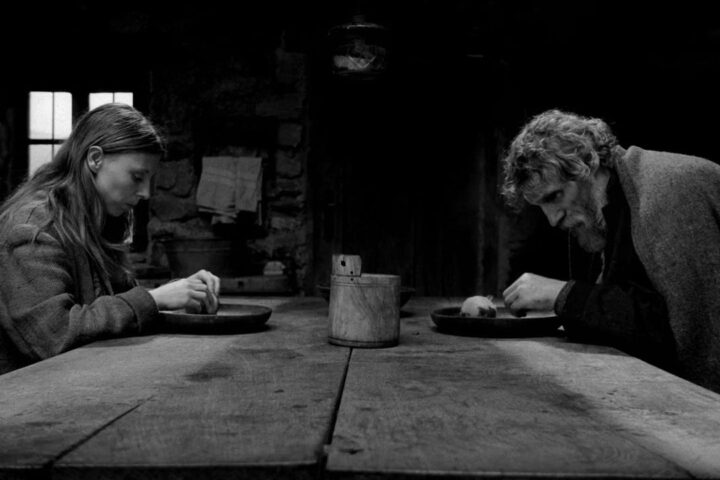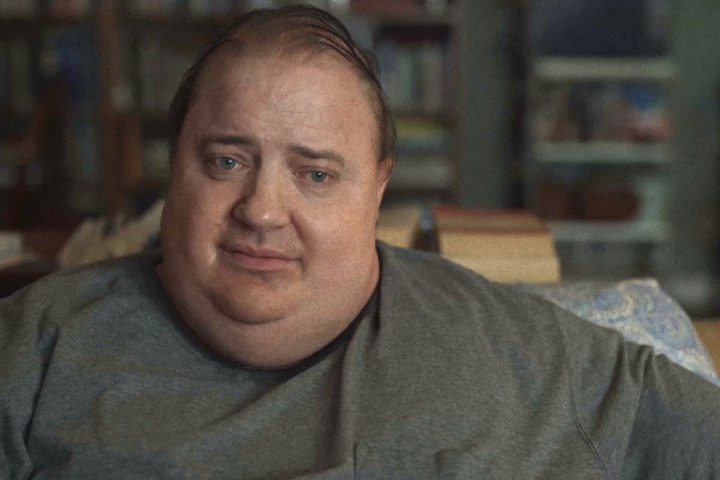As the name suggests, the Enlightenment evoked light—the light of nations that, through science, found happiness in the highest motives of the human spirit: love and fraternity. However, in stark contrast, the present is dark and selfish. Capital’s triumph may be in the final days of the species.
Sex, in its most primitive sense, had to be sublimated by society into higher and more fraternal impulses. Yet, the core of global capitalism seems driven by sex. Both the Me Too movement, the Epstein case, and the recent sexual abuse scandals involving singer and producer Puff Daddy indicate that there’s no honest way to rise to fame, as the path to stardom is one of submission, violation, favor exchanges, and blackmail. For this reason, a century later, humanity deserves nothing less than to be analyzed through the sexual lens of Sigmund Freud.
Hollywood, as a power center, does not escape the aforementioned controversies. The epicenter of the Weinstein case reveals a power dynamic where sex and submission are also pathways to stardom. Beyond this, the film industry’s mecca is in crisis. Two recent issues have accelerated its downfall: the writers’ strike and the problem of artificial intelligence. The first stems from the wage disparity between artists and screenwriters—the true heart of cinema. The second arises from using actors’ voices and movements to create AI-based doubles.
This crisis is mainly symptomized by Marvel’s decline. Adopting the multiverse is a lazy storytelling device that has exposed the creative decay in comics since the 1960s, and it has been projected onto the big screen since Doctor Strange in 2016. The multiverse, a sanctuary of possible outcomes and error correction, like time travel, should be avoided by any writer due to the paradoxes it creates. Hence, franchises like Deadpool have recently succeeded by mocking the industry itself. However, it ultimately mocks the viewer, who buys into a parody that, through the act of purchase, turns back on itself. The movement is thus sweetened with comedy and half-hearted criticism.
This masochistic exercise is not enough: Hollywood needs a more naked self-critique. And this is what we can find in The Substance, a film by French director Coralie Fargeat. It is worth noting that this punitive exercise comes from outside, offering the cinematic giant a path to its own via crucis without truly forcing it toward the Calvary.
What is “The Substance” about?
The movie tells the story of Elisabeth Sparkle (Demi Moore) and the problems of aging and stardom. Elizabeth comes into contact with a substance that allows her to be a better, younger version of herself. The substance divides her into two: her current self, and a younger self played by another actress (Margaret Qualley).
To maintain this double life, one body stays awake for seven days while the other rests. The story unfolds as the younger self wants to stay awake longer, causing the original self to age unnaturally. This leads to both selves battling to maintain their existence, each desiring the annihilation of the other.
What is it really about?
The film is a harsh critique of Hollywood and the objectification of the body, particularly the female body. The main character, the star of a fitness show, has lived through and for her body for generations. When her once-smooth skin begins to sag, she is dismissed. But Elizabeth’s life is empty; being an object is her only activity. Therefore, any possibility to continue that harmful existence is conceivable.
For Freud, there are three psychic instances: the unconscious, the ego, and the superego. Of these, the superego is the moral instance that modulates the unconscious’s impulses in the ego. When Elizabeth splits into two, this happens to some extent. Old Elizabeth functions as a superego, acting as the brake, the limitation that arises from the social contract. Young Elizabeth is the real Elizabeth; she lives in the body, in the pleasure of being an object. Her old version quickly turns into envy, but a substantial envy—a jealousy toward herself, divided by time. Both are, by logic and script, codependent.
The film’s ambiguity lies in whether the resting body is aware of what the other does while awake. In fact, interestingly, the dynamic implies an ex post facto judgment, where the excesses of one body manifest as symptoms in the other while it sleeps. Thus, immediate impulses can be satisfied without regard for the future. This is where it fails as a superego because the threat of consequences is empty in the short term.
At 61, Demi Moore is a beautiful woman. Understanding dignified aging means understanding this. The aged flesh is not as such; it is a body with history, and therein lies its essential determination: the body is a repository of experiences, the inner fuel of the spirit. The history of the body is the materialization of the world in finitude, the general in the particular. Young Elizabeth is ugly, an empty being; her light is the dimmed glow of ancient marble. She represents, in sum, the morbid desire of an industry that rejects history and seeks to live in its eternal Affirmative Culture. But it turns out that the character of Demi Moore lacks nuance and redemption. The film, made on a relatively low budget, reflects in its images the tiny hell of the character’s life. But Moore uses this work as her cathartic outlet; the beauty of Ghost or Indecent Proposal has not faded, despite a botched plastic surgery that has disfigured the artist’s lips.
“…the body is a repository of experiences, the inner fuel of the spirit. The history of the body is the materialization of the world in finitude, the general in the particular.”
A Masochistic Catharsis
Moore, and many other stars, are victims of the culture of eternal youth. In Hollywood, there is no room for other kinds of bodies; beauty comes in one package only: the kind that is shallow, lacking depth or light, a beauty constructed to be objectified. Actors suffer from this, hence the misplaced hatred that often turns inward. Freud, in his 1915 work Instincts and Their Vicissitudes, describes the process where sadism turns into masochism: the active goal of masochism, to martyr and wound, becomes a passive goal, to be martyred and wounded. But when the object becomes the person, a fascinating phenomenon occurs, according to Freud: a new external object is created in fantasy that takes on the functions of the subject. Thus, sadism and masochism are equal, as the latter remains a projected self that inflicts martyrdom on itself.
This makes sense of the body’s split in the film. The real Moore, and many like her, in the cinematic simulation, perform the cathartic exercise of self-hatred toward their current bodies. The other body is the tyrant of a past-present, a possible future in the masochist’s fantasizing mind.
Another parallel exists in psychoanalysis with the pleasure of seeing and the pleasure of being seen. The pleasure of being seen is really the pleasure of a subject projected outside itself to see others. There is a perverse element in the gaze, which is why the film bombards us with images of both the current and potential past body.
The Guilty Pleasure of Self-Criticism
For all these reasons, The Substance is a reflective exercise where the industry can think about itself, and actors can experience a kind of virtual catharsis. The crisis in screenwriting, along with the sexualization of cinema, forces Hollywood (or gives it no choice) into a self-reflective phase. The era of big productions is over. Period films once projected the chivalrous aspirations of honor. Now, period films depict grim realism, hypostatizing the filth of the present in the past.
There is no redemption for the present either, as the current reality has no room for this self-criticism that implies recognizing the mistake—a concept inconceivable for anyone in power. The future is also flawed; the United States is an empire succeeded by others and, in clear decline, incapable of presenting a future that is not dystopian.
The solution is, once again, Marvel; Marcuse’s Affirmative Culture, the realm of timeless values immune to any criticism. The history of cinema, like Elizabeth’s, lacks history, and therefore external forces, by sheer coincidence, have slipped into Hollywood’s decadent theater the exercise of cathartic critique, devoid of redemption and illusion.




